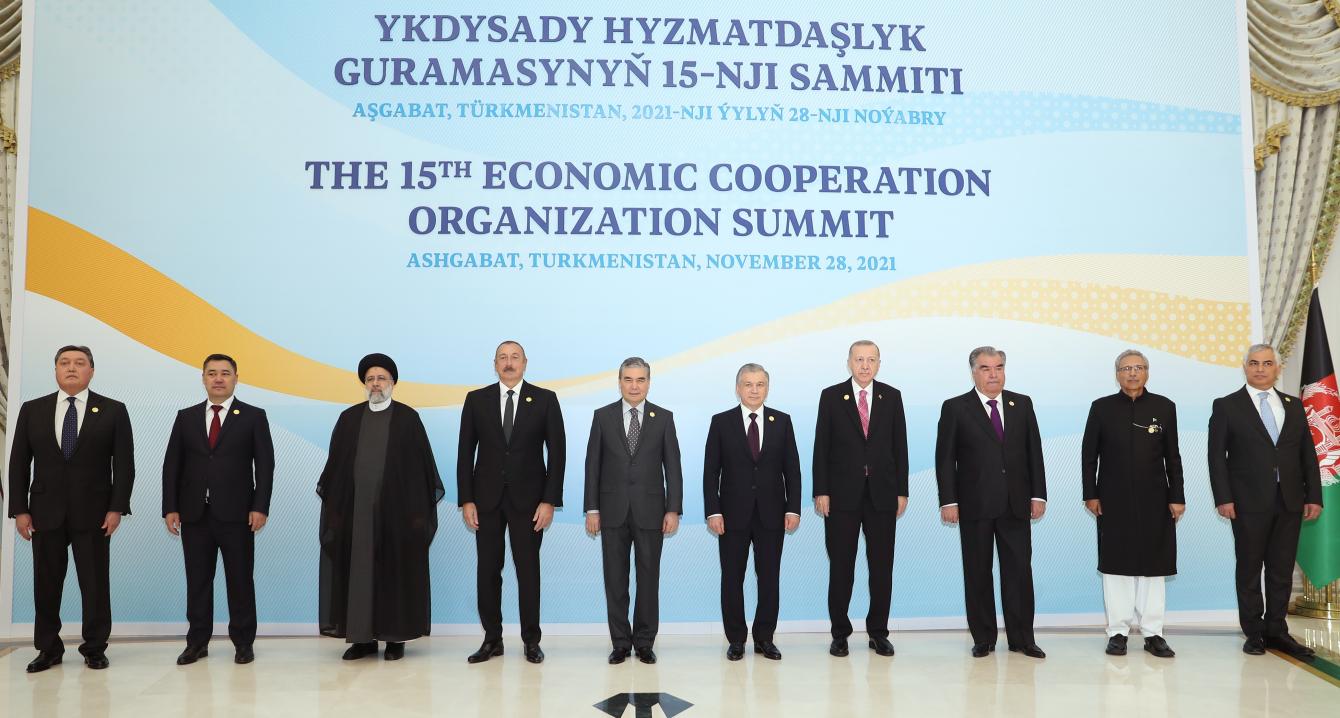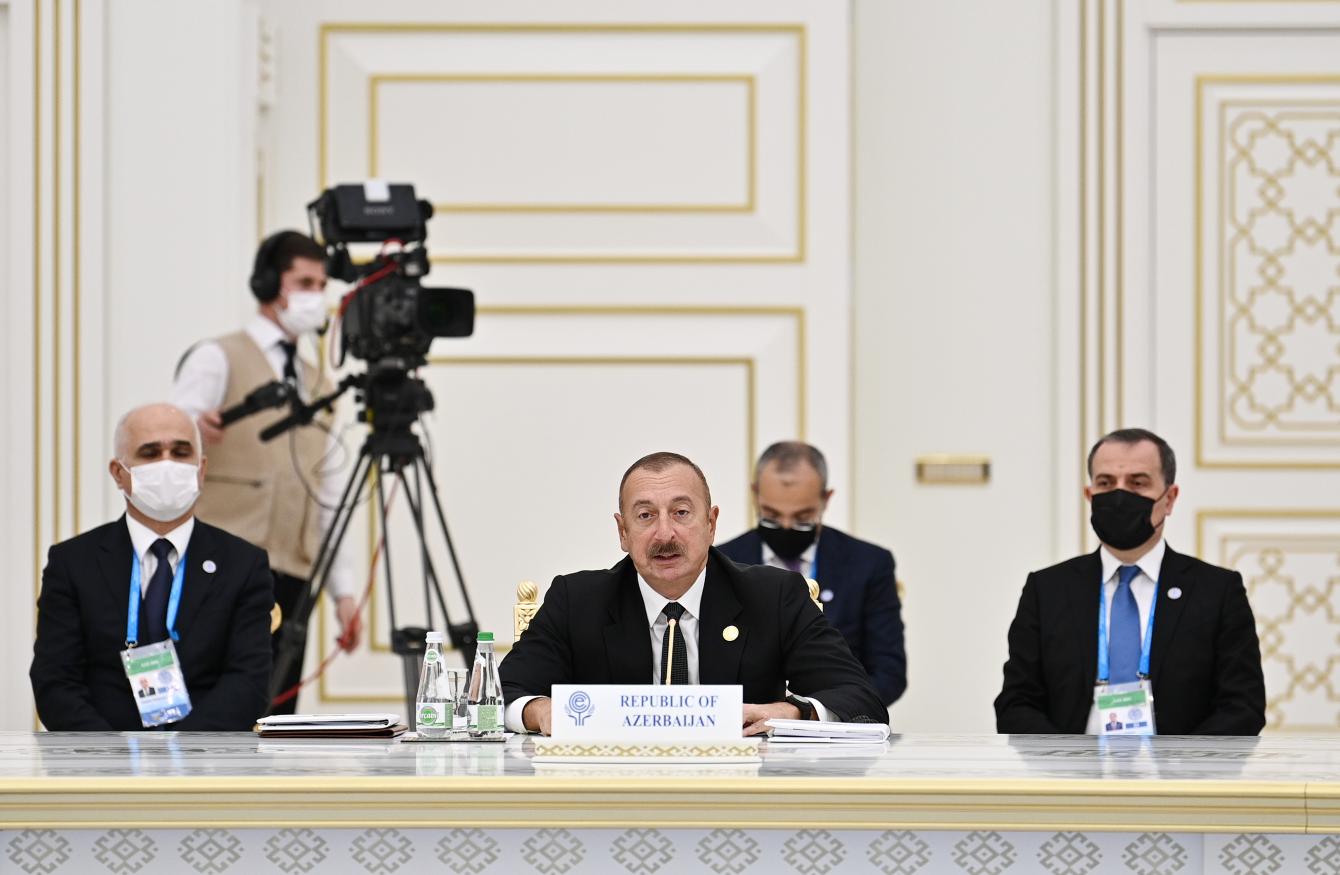AZERBAIJAN – ORGANIZATION OF ECONOMIC COOPERATION

After the restoration of its independence, one of the first organizations of Azerbaijan was the Organization of Economic Cooperation. As an intergovernmental organization, established in 1985 to strengthen economic, technical and cultural cooperation between Turkey, Iran and Pakistan, the OIC is the successor to the Regional Cooperation and Development Organization, which operated from 1964 to 1979. On November 1992, 28, the number of OEC members reached 7, including another 10 countries - Azerbaijan, Afghanistan, Kazakhstan, Kyrgyzstan, Uzbekistan, Tajikistan and Turkmenistan. The day that formalizes the expansion of the organization is marked in the organization’s calendar as “Eco Day”. The OEC has 8 technical committees operating in the field of agriculture; industrial cooperation; transport and communications; infrastructure and Public Works; Science, Education and culture; energy; non-proliferation issues. The committees meet once a year. The OEC Council of Ministers also holds a meeting at least once a year. In 1993, at the 48th session of the UN General Assembly, the OIC received observer status at the UN, and in 1994-at-the Conference of the Islamic organization.
For its part, Azerbaijan has always attached great importance to the activities of the OEC. Of course, the successful activity of the organization is in the interest of all member countries. Because member states are united by both common history and economic and political interest. As a member of the OEC, our state has made proposals and initiative to develop cooperation in many areas. Our country hosted OIC summits in 2006 and 2012, and the documents adopted at these events reflected the basic principles of a number of socio-economic and political relations, priorities and directions of regional relations between the member states.
On October 16, 2012, the 12th summit of the Organization of Economic Cooperation was held in Baku. At the end of the summit, the Baku Declaration was adopted.
The OEC member states expressed a concrete attitude to the Azerbaijan-Armenian Nagorno-Karabakh conflict, which existed until 2020, were critical of Armenia, which violated the territorial integrity of Azerbaijan by opposing international norms, and rightly defended the interests of our country.
 In 2002, at the 7th summit of heads of state and government of OEC member countries held in Istanbul, great leader Heydar Aliyev made a proposal to establish a research center of the OEC in Baku in order to ensure more effective activities. In 2006, at the 9th OEC Summit held in Baku, the proposal to establish the Center in Baku was put forward again by President Ilham Aliyev, and in March 2021, the Charter of the center was signed at the 14th OEC Summit held under the chairmanship of Turkey through a video conference. The main objective of the OEC Research Center is to assist the OEC and its member states in establishing regional cooperation based on Economic Research.
In 2002, at the 7th summit of heads of state and government of OEC member countries held in Istanbul, great leader Heydar Aliyev made a proposal to establish a research center of the OEC in Baku in order to ensure more effective activities. In 2006, at the 9th OEC Summit held in Baku, the proposal to establish the Center in Baku was put forward again by President Ilham Aliyev, and in March 2021, the Charter of the center was signed at the 14th OEC Summit held under the chairmanship of Turkey through a video conference. The main objective of the OEC Research Center is to assist the OEC and its member states in establishing regional cooperation based on Economic Research.
2021 at the XV summit of the Economic Cooperation Organization in Ashgabat, Turkmenistan, on November 28, President Ilham Aliyev said: at the XIV summit of the Economic Cooperation Organization in March, the Charter of the OEC Research Center was signed. I express my gratitude for supporting the initiative of the late President of Azerbaijan Heydar Aliyev by member states. Azerbaijan will spare no effort to ensure the effective functioning of the Center, which will be located in our country. I invite other member states to join this important initiative.” The OEC Summit in Ashgabat can be assessed as very successful for Azerbaijan. The final declaration “Ashgabat action consensus” adopted at the summit contains provisions that meet the interests of Azerbaijan. “… Congratulating the Government and people of the Republic of Azerbaijan on the liberation of the occupied territories and the restoration of the territorial integrity of the country and believing that will open the way to sustainable peace and economic progress in the Caucasus region by establishing good-neighborly relations, the Member States should invest in reconstruction projects and reconstruction work in the territories of the Republic of Azerbaijan liberated from occupation. We urge you to explore investment opportunities…,” the document says.
Also, in reports adopted within the framework of the Economic Cooperation Organization, the concept of “corridor” is reflected in the context of “documents signed by the leaders of Azerbaijan, Russia and Armenia”. This is also a clear example of Baku’s successful foreign policy, as a result of which it was possible to achieve the adoption of the term “Zangazur corridor” in the OEC region and attract the attention of key regional players to this transport artery. This significantly increases the likelihood that other OEC countries will join the “3+3” cooperation format proposed by the president of Azerbaijan.



